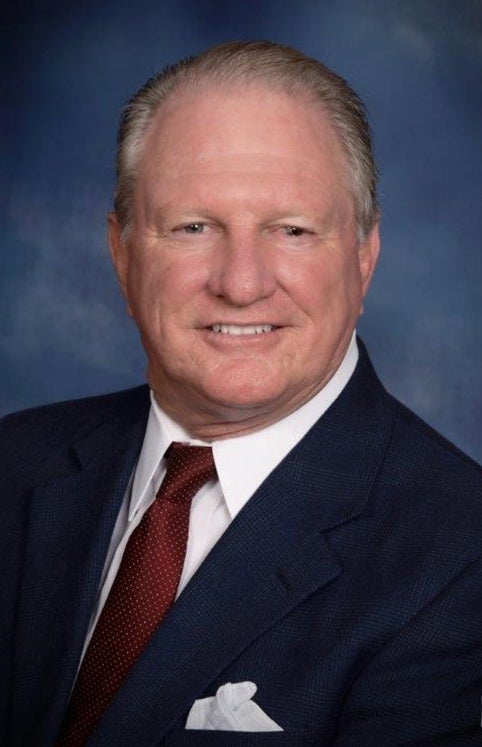ADEM: Tap water is 100% safe
Published 4:04 pm Wednesday, April 1, 2020
|
Getting your Trinity Audio player ready...
|
Agency encouraging people not to hoard cases of water
The Alabama Department of Environmental Management announced Tuesday that there isn’t a need to hoard cases of bottled water during the coronavirus pandemic because water from the tap is 100 percent safe.
 “With so many things Alabamians have to worry about – their jobs, social distancing, the welfare of loved ones, gathering food and other necessities – the safety of their drinking water shouldn’t be one of them,” said Lance LeFleur, ADEM’s director, in a release. “The water they get from their tap, whether it’s from a large municipal system or a small, rural utility, is 100 percent safe due to the proven safety requirements they are required to follow and that ADEM enforces. People don’t need to fear the coronavirus as far as their water is concerned.”
“With so many things Alabamians have to worry about – their jobs, social distancing, the welfare of loved ones, gathering food and other necessities – the safety of their drinking water shouldn’t be one of them,” said Lance LeFleur, ADEM’s director, in a release. “The water they get from their tap, whether it’s from a large municipal system or a small, rural utility, is 100 percent safe due to the proven safety requirements they are required to follow and that ADEM enforces. People don’t need to fear the coronavirus as far as their water is concerned.”
LeFleur said the disinfectants the water systems add as standard operating procedures kill viruses, including COVID-19. Additionally, standard operations of municipal wastewater systems kill any viruses before the treated water is discharged into Alabama’s rivers and streams.
ADEM, through its permitting and inspections, is making sure the drinking water systems as well as wastewater systems abide by the appropriate, stringent clean water standards, LeFleur said.
In a letter sent Friday to Gov. Kay Ivey, the administrator of the U.S. Environmental Protection Agency, Andrew R. Wheeler, emphasized the importance of the public’s confidence in their water supply in combating novel coronavirus.
“Ensuring that drinking water and wastewater services are fully operational is critical to containing COVID-19 and protecting Americans from other public health risks,” Wheeler said. “Handwashing and cleaning depend on providing safe and reliable drinking water and effective treatment of wastewater.”
Wheeler said the U.S. Department of Homeland Security recognizes water and wastewater treatment workers and their suppliers as essential critical infrastructure workers, and urged state and local officials to “ensure that these workers and businesses receive the access, credentials, and essential status necessary to sustain our nation’s critical infrastructure.”
LeFleur said, “From an environmental standpoint, nothing is more important than maintaining clean drinking water,” he said. “While coronavirus does not in itself pose a threat to our drinking water, nor to our wastewater treatment systems, it would be impossible to fight the virus without clean water. Our water systems and their employees are essential, and from our standpoint, so too are the people, our people, whose job is to make sure those systems are safe and well-maintained.”
Aubrey White heads the drinking water branch of ADEM’s Water Division, which oversees municipal and rural water systems as part of the agency’s authority delegated by the EPA to carry out the provisions of the Safe Drinking Water Act in Alabama. ADEM does this through enforcement of regulations, construction and operating permits, robust monitoring and reporting, and frequent inspections of the nearly 600 public water systems in the state.
“Obviously, this is a huge responsibility given us, and we take that responsibility very seriously” White said. “Even as a lot of business and state agencies have curtailed activities due to COVID-19-related mandates, we must continue the monitoring, inspections, reporting and enforcement of the regulations that help ensure our water is clean and safe and will remain clean and safe.”
An example of ADEM’s continuing efforts to safeguard public health is the State Revolving Fund (SRF), through which the agency provides low-interest loans to public water, wastewater and stormwater management systems to pay for infrastructure improvement projects. Three such projects recently were awarded funding by ADEM totaling millions of dollars and are currently in the public comment period – $1.25 million to the Grand Bay Water Works Board in Mobile County for a new wastewater treatment unit; $1.2 million to Phenix City for a sanitary sewer lift station; and $462,000 to Spanish Fort to restore and improve a drainage canal.
“Some of these projects might not be possible if not for the financial assistance we help provide,” said Kris Berry, chief of ADEM’s State Revolving Fund section. “These projects were proposed by the local authorities based on what they need to maintain and improve their safe water managing systems, reviewed by our staff and opened to the public to weigh in.”




